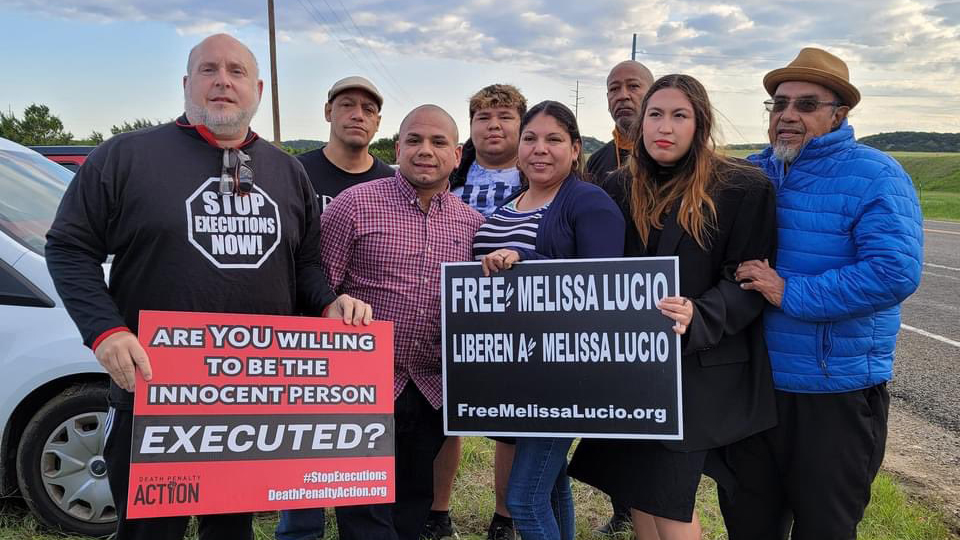After protests across the United States, and outrage from politicians, celebrities, and organizations, the Texas Court of Criminal Appeals granted Texas mother Melissa Lucio a stay of execution on Monday, April 25. Her execution was set for Wednesday, April 27.
Melissa Lucio was convicted and sentenced to death in 2008 for killing her youngest child, Mariah. There was no evidence that Melissa had ever abused any of her 12 children. Following the accident that led to her daughter’s death, Melissa was interrogated for five hours until three in the morning by Texas police. The jury that convicted her did not hear the testimony of one of her children, who said that Mariah had fallen down the stairs. The jury was not informed that Mariah had a minor disability which made her prone to falls.
The District Attorney at the time of her trial, Armando Villalobos, was trying to rehabilitate his public image after a convicted murderer had escaped the country. In sentencing Melissa to death, it seemed that Villalobos’ sought to present himself as “tough on crime” to help his reelection campaign. Villalobos was later sentenced to 13 years in federal prison for corruption.
Melissa’s supporters insist that her confession, a key piece of evidence the prosecution used against her, was coerced. State officials used “maximization” and “minimization” tactics which have been repeatedly associated with false confessions. At the time of her confession, Melissa was sleep deprived, she had not eaten, and she was pregnant with twins.
The judge in her trial blocked her defense from presenting her lifelong history of physical and sexual abuse by men as evidence that her confession was coerced. According to Melissa’s interviews and her lawyers, her abuse played a major role in the trajectory of her life. At age 16, Melissa got married to escape her abusive childhood, during which several men in and around her family had molested her. Her new husband, however, also became abusive, and abandoned her after she bore him five children. Melissa found a new husband and also had several of his children, but he also abused her, repeatedly raping her and threatening to kill her. By the time Mariah died, Melissa was severely traumatized, often homeless and struggling to care for twelve children, and dealing with a drug addiction.
Melissa’s supporters argue that a misogynist system played a role in the outcome of her trial. While Melissa was interrogated for over five hours, police questioned Melissa’s abusive husband, Roberto Alvarez, as more of a witness than a suspect. He was convicted of failing to provide medical help for Mariah and sentenced to only four years in prison, while Melissa was sentenced to death.
For women exonerees in the US, most were exonerated for a crime that never occured, such as accidents or suicides. Many have been wrongfully convicted for harming a child in their care. Women are the fastest growing prison population in the US, with a 750% increase from 1980 to 2017. Incarcerated women have a much higher percentage of history of trauma than the general population, and even than incarcerated men.
Leading up to Melissa’s day of execution, the US was swept in a massive public outcry for clemency. Supporters held rallies in 16 cities. Famous exoneree Amanda Knox and celebrity Kim Kardashian spoke up in favor of Melissa. Politicians from both major parties expressed outrage at the upcoming execution. A bipartisan group of over 80 lawmakers in the Texas House of Representatives sent a letter to the Texas Board of Pardons and Paroles to push for clemency. Five jurors who convicted Lucio have called for a new trial. As one supporter was quoted saying, “what if this was my mother?”
A few months ago, in that blurry haze of new motherhood, I left my infant daughter Eureka on the couch for just a few seconds. She rolled and slipped and tumbled to the floor, hitting her head, then burst out crying. /a thread to #SaveMelissaLucio
— Amanda Knox (@amandaknox) April 20, 2022
Supporters have vowed to continue to fight for the State of Texas to overturn Melissa’s conviction.





